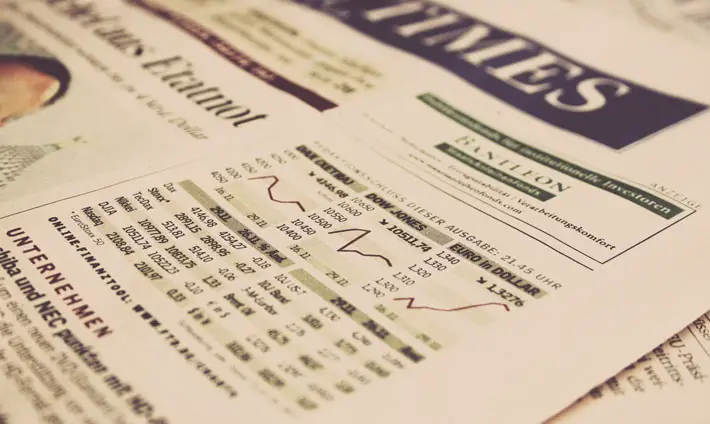The Next Great Depression? Economists Warn COVID-19 Impact will be Severe

If anyone told us a year ago that 2020 would be the year we’d experience not only a coronavirus pandemic, but the worst recession since the Great Depression of the 1930s, we’d surely have dismissed it as a scenario from a dystopian disaster movie.
The loss of life has been huge: confirmed cases of Covid-19 have now surpassed 30 million across the globe according to the Johns Hopkins Coronavirus Resource Center, with confirmed coronavirus deaths now standing at more than 946,000. These figures immediately dwarf the knock-on economic impact of the virus, yet it’s essential to acknowledge that the economy is intricately entwined with social issues and quality of living: a global recession has consequences for everyone – especially the most disadvantaged in society.
A domino effect
The International Monetary Fund estimates that real GDP growth dropped by -0.3% during what it describes as “the great lockdown” of the coronavirus pandemic, whereas it decreased by -0.1% during the global financial crisis of 2008/09, which, at the time, seemed unsurpassable in its severity. Across the globe, mass unemployment, a plummeting stock market, and both local and national lockdowns have seen the world economy dwindle, with the accumulation of non-performing corporate loans and bankruptcies. However, while the corporate world takes a hit, the World Bank predicts it is society’s most disadvantaged who will be pushed further to the brink – with 60 million people worldwide at risk of extreme poverty.
The World Bank expects economic activity amongst the most advanced economies to shrink by 7% this year, due to the severing of domestic demand and supply, trade, and finance, while perhaps more shockingly, emerging market and development economies (EMDEs) prepare for their first contraction in sixty years, with economic activity expected to decrease by 2.5% for these nations.
Trade has also been particularly hard hit, and it was already slowing worldwide before the virus due to tensions between nations and slowing economic growth. The World Trade Organisation now predicts that world merchandise trade will plummet by between 13 and 32% in 2020, and, while all countries will be affected to some extent, it is North America and Asia that will lose out the most.
Stock markets also plummeted as Covid-19 cases rose: the Dow and the FTSE saw their biggest quarterly drops in the first three months of the year since 1987. In response, many of the big banks slashed interest rates in a bid to encourage spending and borrowing. However, even signs of recovery should be received with caution, as the global economy continually hangs on every waking move of the pandemic, and is constantly volatile to change, particularly as countries such as the UK brace itself for another potential lockdown.
While the immediate impacts of decreasing trade and dwindling stock markets are perhaps not so explicit, mass unemployment and the strain on small businesses is certainly widespread. The US has one of the worst unemployment rates at present considering its wealth and resources. When Covid-19 first started spreading in the US, joblessness sky-rocketed to 14.7%, up from 4.4% in March. Not only this, but half of all workers in the US are employed by small businesses, where wages are low and business owners lay prone to bankruptcy. In August 2020, the overall US unemployment rate was down to 8.4%, but, as the US death toll for the Covid-19 reaches 200,000, everything lies volatile in the path of the coronavirus, particularly as it’s expected that consumer spending habits will continue to be impacted by the pandemic even when lockdowns have subsided.
An impossible balance?
One of the biggest challenges for governments is finding a way to effectively deal with the coronavirus while damaging businesses and the economy as little as possible. This isn’t as simple as it sounds though, particularly in countries where industries such as tourism are predominant. With much of the world’s air travel ground to a halt and with many governments issuing anti-travel advice, the World Travel and Tourism Council predicts that more than 197 million jobs could be lost globally if barriers to travel remain in place for much longer.
Yet at the same time, to recover as quickly as possible, governments are also conscious of slowing the spread, and to do this many have implemented policies such as lockdowns, travel bans, and quarantine measures for those entering and leaving. However, the longer people are held back, the less money they spend, and the slower the recovery for the economy. Simultaneously, the faster the virus spreads, the worst its impacts could be in the long-run.
Lasting scars
The road to recovery is likely to be a long one, as on average, the worst financial crises of the past two centuries have taken around eight years for GDP per capita to return to its pre-crisis level. In regions where the virus is under control and lockdowns have eased, including China, where the virus began, economic activity is starting to recover, however, seen as data is usually out-of-date by the time it is published, countries are perpetually vulnerable to a sudden spike in cases, such as in the UK, which is now facing a projection of 50,000 cases a day by mid-October if no further action is taken.
Globally speaking, the poorest countries will take the longest to recover, as these have fewer resources to facilitate policies such as working from home, which could help ease the spread of the virus while keeping businesses going. While many European nations subsidize the salaries of their workers who are unable to work or who have suffered reduced hours, the United States has not. Moreover, many developing countries cannot afford such schemes or safety nets, and these are often the ones depending on tourism too, an industry that will take years to fully recover. Generally speaking, as governments hand out more money, the impacts incurred by austerity will be felt more intensely later on, as purse strings tighten.
The bottom line is, while the pandemic won’t last forever, it will change the world as we know it, and there has to be some acceptance of this. As Javad Marandi states, in order to save lives, big investors must slow down to spare the long-term impact on small businesses and developing nations, who have already been the hardest hit. Needless to say, our ability to save lives moving forward depends largely on at least a partial sacrifice when it comes to the global economy.










